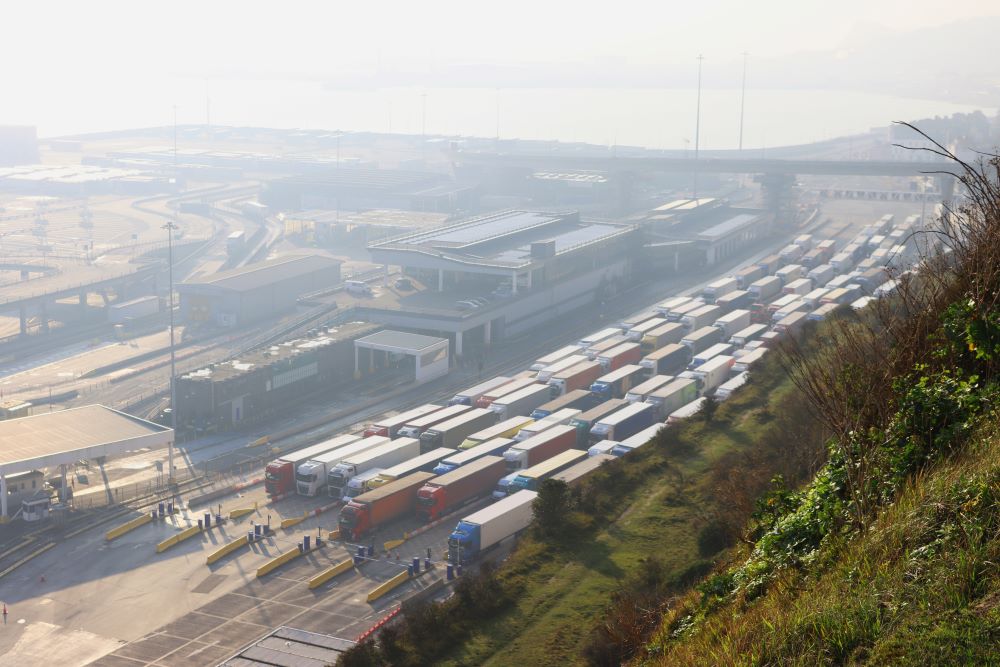
The Port of Dover has said a seasonal spike in freight traffic was to blame for long queues on roads in Kent last week.
Traffic management measures, under operation Travel Access Protocol (TAP), were put in place on Wednesday and Thursday, leading to tailbacks on the A20.
Surprise
Queues appeared to have eased by Saturday, according to the Guardian.
Freight levels usually surge in the third week of January after the Christmas break, but drivers said the scale of last week’s delays was nonetheless a surprise.
Documentation
Driver Ciaran Donovan said it was taking “10-20 minutes per vehicle to process paperwork” despite ferries being “half empty”.
The documentation required for lorries carrying goods into and out of Britain has increased following Brexit, with border controls for exports introduced at the start of 2021 and new requirements for imports bought in at the start of 2022.
On New Year’s Day, the government’s new IT system for processing customs documentation, the Goods Vehicle Movement System (GVMS), also became operational.
Nine-mile queues
One courier told the Independent they had been caught in queues of up to nine miles since the introduction of full customs controls on imports on 1 January.
Sixfold, a traffic tracker, recorded “higher than usual” tailbacks last week and there were reports of queues stretching back seven kilometres from Dover on Friday morning.
There have also been some technical issues with GVMS since it was introduced at the start of the year, according to multiple hauliers.
‘Carnage’
A Dover customs worker claimed to the Metro that there had been long HGV queues at Dover every day since 1 January, and “30km queues in Calais”.
“I am a Dover customs account manager and it is absolute carnage,” they claimed.
A cross-party group of MPs on the Transport Committee visited Dover last week to hear the concerns of port chiefs and assess overflow space.
Regular tool
However, a Port of Dover spokesperson told the BBC that TAP is “a well-established and regularly used normal operational tool” to manage traffic in the area.
Ferry firm DFDS also added that there were “short delays” on the route as it was operating one less vessel.
Future concerns
Doug Bannister, the chief executive of the port, has voiced concerns that queues could get worse in September, when airport-style biometric checks are due to be introduced.
“If it is forcing people to get out of their vehicles inside of a busy port, that is just unsafe. We couldn’t allow that to happen. That will lead to increased queues, no doubt,” he said.

